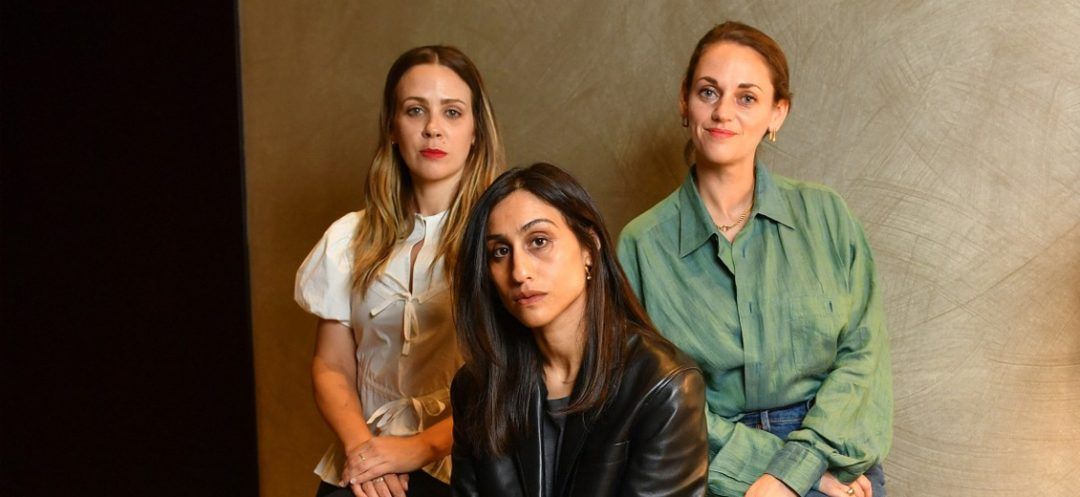
©"Bonjour Tristesse" producers Lindsay Tapscott (L) Katie Nolan (R) and director Durga Chew-Bose.
Durga Chew-Bose revives Bonjour Tristesse for a new generation at the Toronto Film Festival.
Canadian writer-turned-director Durga Chew-Bose recently took on the ambitious project of adapting Françoise Sagan's 1954 novel Bonjour Tristesse (“Hello Sadness”). Chew-Bose didn't stop at writing; she also offered creative direction on costumes and music, adding depth to the film's visual and auditory landscape. Her debut feature, which reinterprets Françoise Sagan's narrative of wealth, ennui, and betrayal in the picturesque south of France, premiered at the Toronto Film Festival.
Starring Chloë Sevigny, Claes Bang, and Lily McInerny, the film centers on Cecile, a young woman whose summer of manipulation drastically changes the lives of those around her, including her father, his ex-lover, and his new girlfriend. Chew-Bose explores the intricate dynamics among these women, the secrets they keep, and their complex interplay of power.
One scene where Cecile, Elsa, and Anne share a tense breakfast highlights Chew-Bose's keen ability to capture unspoken conflict, bringing her vivid directorial vision to the forefront. Despite her relative inexperience, producers Katie Bird Nolan and Lindsay Tapscott were convinced of her distinctive perspective after reading her screenplay, which was rich in musical and costume details that hinted at her potential as a director.
Nolan and Tapscott had been working for nearly eight years to bring this adaptation to life, navigating the complexities of securing rights and gaining the approval of Sagan’s family. Their dedication to maintaining the spirit of the original work while updating its context to engage modern viewers paid off, allowing them to offer a fresh interpretation that resonates with today’s audiences.
Filmed in Cassis over a month, the movie intricately depicts Cecile’s psychological turmoil as she teeters on the brink of adulthood. Chew-Bose believes the themes of Bonjour Tristesse—a young woman grappling with her evolving identity amidst various life challenges—are as relevant today as they were in the 1950s, capturing a universal aspect of the human experience.
Chew-Bose hopes the film will spark renewed interest in Françoise Sagan and introduce her work to those unfamiliar with her influential legacy, emphasizing the timelessness and relevance of the author's themes.
Françoise Sagan emerged as a defining voice in literature with her debut, Bonjour Tristesse, written when she was just a teenager. Her style—marked by crisp, direct prose—along with themes of love, disillusionment, and moral ambiguity, resonated deeply with the 1950s French intellectual scene. The writer's narratives often explore complex emotional landscapes with an economy of words, embodying a blend of philosophical introspection and raw emotional honesty. Her ability to articulate the intricate dynamics of human relationships and existential ennui has secured her status as a pivotal figure in modern French literature, celebrated for her unflinching exploration of youthful defiance and introspection.
With AFP
Read more



Comments